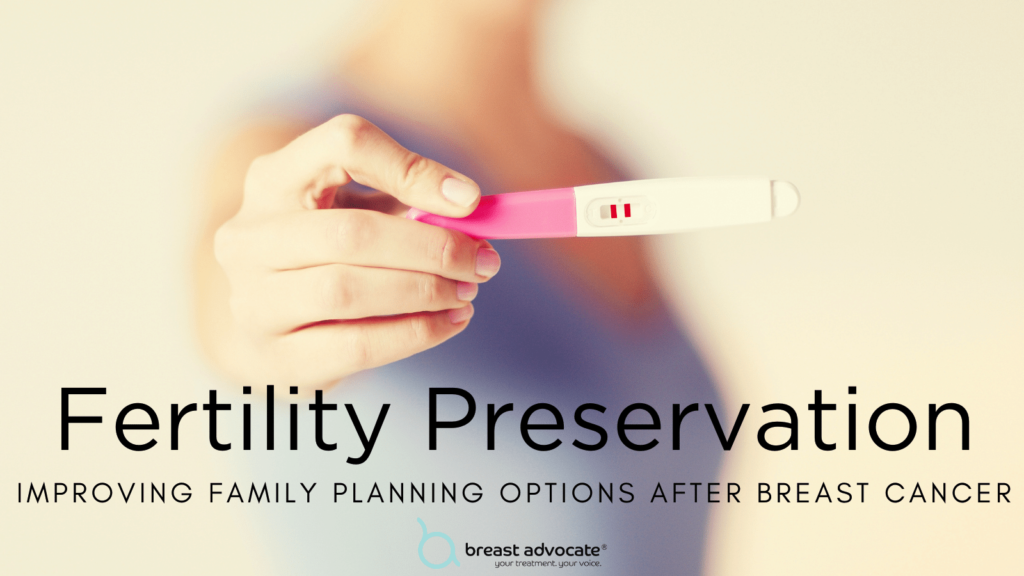Fertility Preservation Before Breast Cancer Treatment Improves the Likelihood of a Healthy Pregnancy After a Breast Cancer Diagnosis

A common concern for many young women following a breast cancer diagnosis is the impact cancer treatment may have on their ability to have children. Certain cancer therapies like chemotherapy and radiation can greatly impact a woman’s ability to get pregnant and have a healthy pregnancy, but fertility preservation before breast cancer treatment may help.
A Swedish study published in JAMA Oncology found that fertility preservation at the time of a breast cancer diagnosis can increase the likelihood of a healthy pregnancy and birth after breast cancer treatments.
According to the National Cancer Institute, fertility preservation is “a type of procedure used to help keep a person’s ability to have children. A fertility preservation procedure is done before a medical treatment that may cause infertility, such as radiation therapy or chemotherapy. Examples of fertility preservation procedures include sperm banking, egg freezing, in vitro fertilization with embryo freezing, and certain types of surgery for cervical and ovarian cancer.”
The Swedish study followed 425 women with breast cancer who underwent fertility preservation between 1994 and 2017. The study control group consisted of 850 women diagnosed with breast cancer who did not undergo any fertility preservation. The results showed that 22.8% of women who had fertility preservation had at least one healthy pregnancy and birth following their breast cancer diagnosis, compared to 8.7% of women who did not have a fertility preservation procedure.
The women who opted for fertility preservation also reported having more children compared to the control group at 5 and 10 year follow-up.
It is important for women who may want to expand their families following a breast cancer diagnosis to be aware that cancer treatment may lead to infertility. Likewise, it is important for women and their doctors to engage in informed shared decision-making conversations to determine if fertility preservation options may be beneficial for future family planning.






